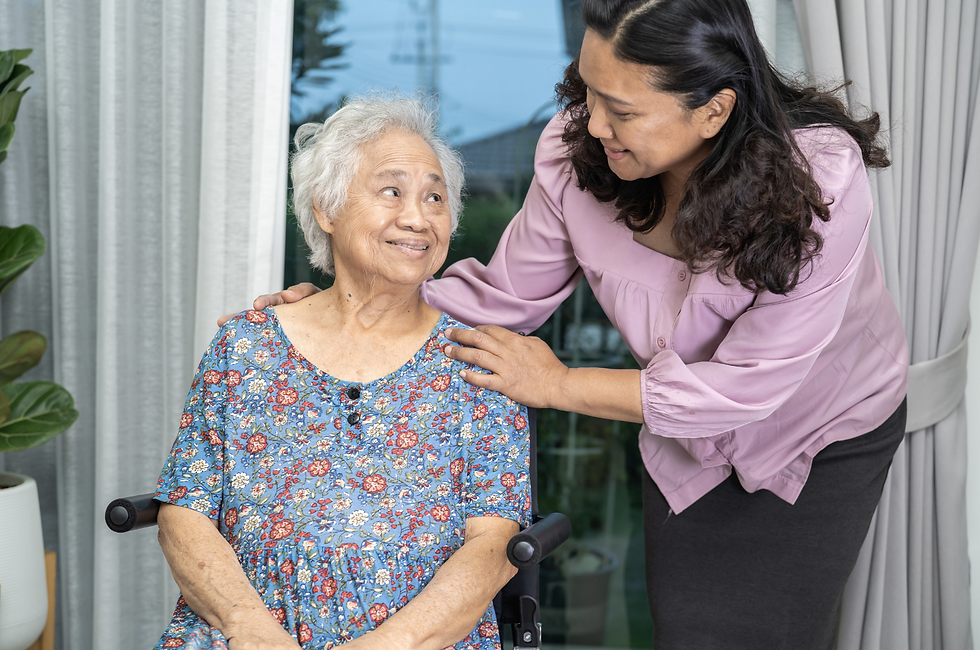Trauma-Informed Care
- Senior Support Services

- Mar 15, 2022
- 2 min read
Updated: Mar 31, 2022
What is trauma-informed care? Why is it important to take a trauma-informed approach to care for our loved ones?
Has your loved one experienced any form of trauma in their life? This could be anything from the loss of someone special in their life to a diagnosis of a chronic health disease or concurrent diseases. Trauma could even be a sudden accident that has left them with a loss of mobility and independence. We often think of trauma as being from a singular, significant event that has a negative long-term impact on the individual experiencing it. However, it is essential to understand that trauma comes in all shapes and sizes at different times in life and is never experienced the same way between two people. With this idea of trauma in mind, I want to share what trauma-informed care is and why it is vital to caregiving.
Trauma-informed care aims to give people choices and control over decisions that affect them to help them build feelings of control and self-empowerment. Although there is no set definition, trauma-informed care can be understood as a strengths-based framework grounded in an understanding and responsiveness to the impact of trauma, emphasizing physical, psychological and emotional safety for both providers and survivors. There is no “one way” to provide trauma-informed care, as it is based upon each person and their own unique experiences in life. As a caregiver or provider of trauma-informed care, it is important to be knowledgeable about the prevalence of trauma, understand how it impacts each person differently, and use this knowledge to inform the care you do with your loved ones in a way that is compassionate, genuine and authentic.
There are five principles that guide trauma-informed care:
Safety: make the environment feel safe and warm for your loved one
Choice: Offer choices and options where possible for your loved one
Collaboration: Work in collaboration with your loved one to make choices, big or small
Trustworthiness: Work on enhancing trust levels by reaching all aspects of your loved one’s life, that being, physical, spiritual, emotional and psychological
Empowerment: Give your loved one control in decision making where feasible, and make space for them to be independent in their thoughts and actions to promote levels of self-empowerment
Why is trauma-informed care an important approach to caring for your loved ones? It is essential because it allows your loved ones to see that they are the expert in their own life. It gives them independence and control while feeling safe, empowered and trusting in you as their caregiver. Additionally, the trauma-informed approach allows you as a caregiver to provide more empathetic, person-centred, and genuine care, which enhances the quality of care provided. To learn more and gain basic certification in trauma-informed care, please visit the link below, which Alberta Health Services provide for free!








Comments